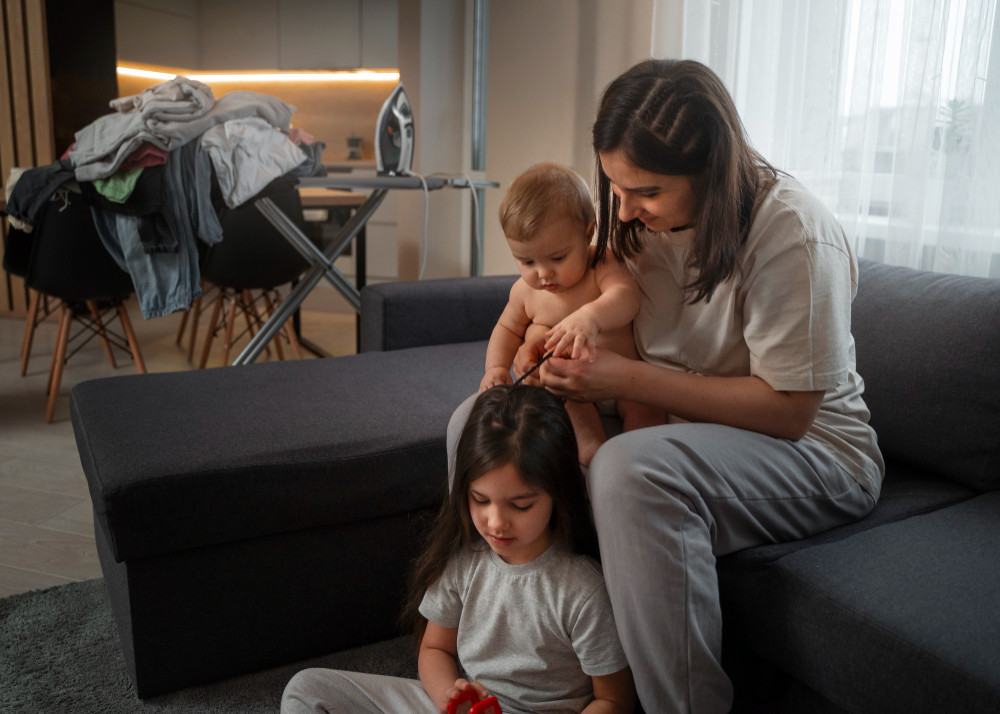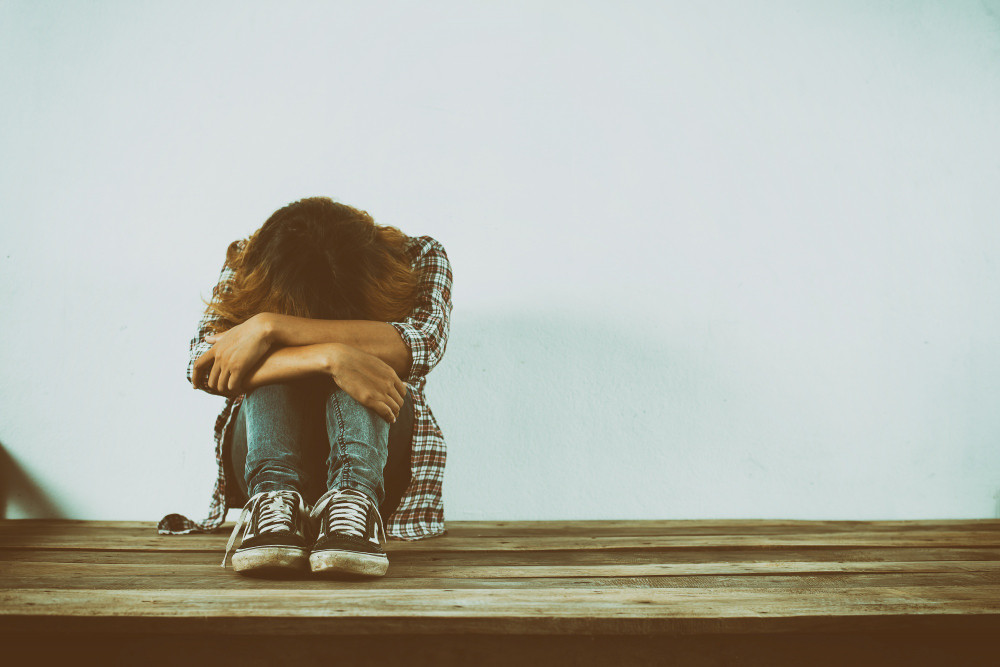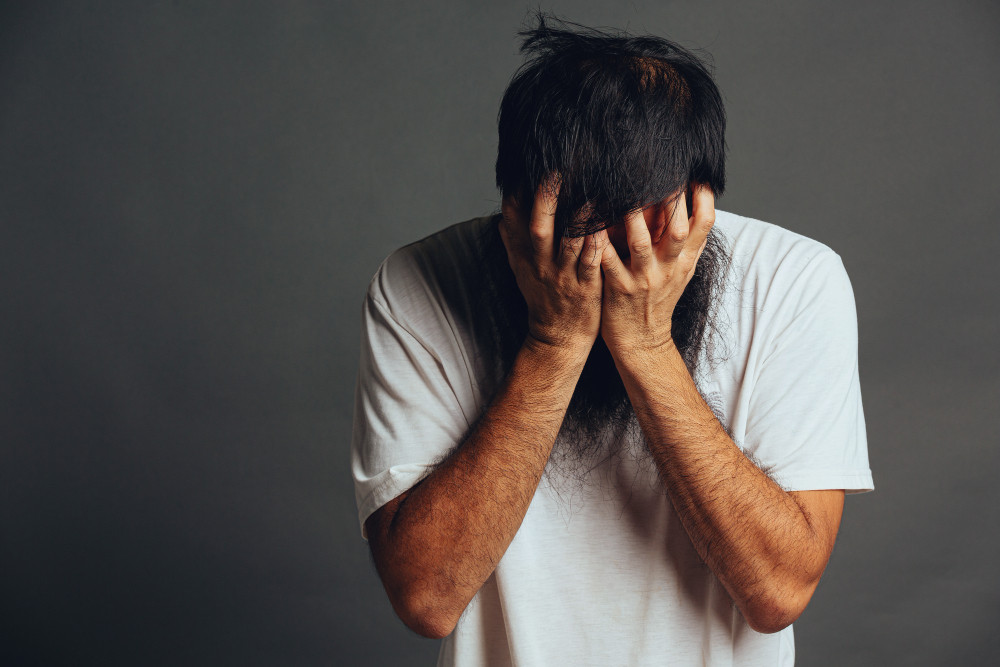Tahukah Anda bahwa ibu rumah tangga rentan mengalami depresi? Depresi pada ibu rumah tangga merupakan kasus yang banyak terjadi namun tidak semua orang menyadarinya. Banyak ibu rumah tangga yang tinggal di rumah bisa mengalami rasa terisolasi, kesepian, kehilangan identitas diri dan kesedihan mendalam. Ada banyak faktor yang ikut berkontribusi pada depresi yang dialami ibu rumah tangga.
Penyebab Depresi pada Ibu Rumah Tangga
Depresi pada ibu rumah tangga adalah jenis depresi yang dialami oleh ibu yang sehari-harinya banyak menghabiskan waktu di rumah untuk mengurus keluarga dan tidak berkarir di luar rumah. Menjadi ibu rumah tangga merupakan peran yang rentan mengalami stres atau depresi. Ibu rentan mengalami rasa terisolasi karena mereka tidak memiliki kesempatan untuk berinteraksi dengan orang dewasa lain dan hanya berada di rumah. Selain itu, masih ada stigma yang melekat pada ibu rumah tangga.
Di masyarakat, peran ibu rumah tangga identik dengan mengurus keluarga, menata rumah, dan memastikan bahwa kebutuhan seluruh anggota keluarga tercukupi. Pekerjaan rumah tangga dianggap merupakan pekerjaan rutinitas yang mudah dilakukan sehingga membuat peran ibu rumah tangga kerap diremehkan. Pada kenyataannya, ibu rumah tangga hampir selalu melakukan pekerjaan di rumah dan mereka tidak bisa beristirahat atau mengajukan "izin sakit" dari menjadi seorang ibu.
Selain itu ibu rumah tangga umumnya tidak bekerja dan memiliki penghasilan tetap sehingga sering dianggap tidak produktif dari segi ekonomi. Selain stigma tersebut, ibu rumah tangga masih dituntut untuk melakukan peran lainnya sehingga melupakan kewajiban untuk merawat dirinya sendiri dan melakukan hal yang disukai. Banyak ibu yang akhirnya merasa harus menjadi figur sempurna dan tidak bisa mengeluh mengenai frustrasi dan tantangan yang mereka rasakan.
Menjadi ibu rumah tangga juga dapat membuat ibu rumah tangga merasa terisolasi dari pergaulan karena lebih banyak menghabiskan waktu bersama anak-anak. Bagi wanita karir yang kemudian memilih menjadi ibu rumah tangga terkadang merasa kehilangan identitas yang memengaruhi aktualisasi dirinya.
Faktor-faktor tersebut dapat memicu terjadinya depresi pada ibu rumah tangga. Selain itu depresi pada ibu rumah tangga juga dapat disebabkan oleh:
- Perubahan kadar neurotransmitter di otak
- Stres, kurangnya dukungan dari orang lain atau trauma karena perubahan kondisi
- Perubahan kadar hormon akibat hamil dan melahirkan
Baca Juga: Tanda-Tanda Fisik Bila Wanita Sedang Stres
Tanda-Tanda Depresi pada Ibu Rumah Tangga
Tanda depresi yang dialami ibu rumah tangga dapat berbeda-beda pada setiap ibu. Bisa muncul rasa bersalah karena merasa stres ketika berada di sekitar anak atau keluarganya, atau merasa tidak berbuat cukup untuk keluarga mereka. Perasaan ini umum ditemukan. Beberapa tanda depresi ibu rumah tangga yang sering muncul antara lain:
- Perasaan sedih yang tidak kunjung hilang
- Merasa putus asa atau hampa
- Sering merasa mudah tersinggung atau frustrasi
- Kehilangan minat pada hobi yang sebelumnya dinikmati
- Kehilangan tujuan atau identitas dan merasa hanya ada untuk merawat orang lain
- Sulit fokus pada tugas-tugas tertentu
- Perubahan berat badan atau nafsu makan yang tidak direncanakan
- Masalah tidur, seperti terlalu banyak tidur atau insomnia
- Tidak berenergi atau merasa lelah (burnout) sepanjang waktu
- Merasa bersalah atau tidak berharga dan tidak berdaya
- Muncul pikiran untuk bunuh diri atau tidak ingin ada di dunia
Baca Juga: Mengapa Depresi Makin Parah di Malam Hari?
Penanganan Depresi pada Ibu Rumah Tangga
Meski rentan memicu depresi, namun menjadi ibu rumah tangga merupakan peran yang bisa memberikan kebahagiaan bagi seorang ibu. Jika ibu mengalami gejala depresi yang sudah dirasakan selama beberapa waktu, tidak kunjung hilang dan sampai memengaruhi kehidupannya, sebaiknya periksakan ke dokter atau psikolog untuk mendapatkan penanganan. Semakin cepat penanganan yang diberikan diharapkan dapat mencegah depresi untuk berkembang menjadi semakin parah.
Beberapa penanganan yang bisa diberikan untuk mengatasi depresi antara lain dengan mengonsumsi obat-obatan antidepresan dan terapi seperti terapi perilaku kognitif. Selain itu ibu juga diharapkan menerapkan self care seperti makan makanan yang menyehatkan, istirahat yang cukup, latihan relaksasi, manajemen stres yang baik dan menyempatkan waktu untuk bersosialisasi dengan orang lain.
Menjadi ibu rumah tangga bukanlah perkara mudah. Jika Anda merasakan gejala stres atau depresi sebaiknya bicarakan dengan pasangan lalu konsultasikan ke dokter. Anda juga bisa memanfaatkan fitur konsultasi pada aplikasi Ai Care.
Mau tahu informasi seputar kehamilan, menyusui, kesehatan wanita dan anak-anak? Cek di sini, ya!
- dr Hanifa Rahma
Effa, C. (2023). Understanding stay-at-home mom depression. Available from: https://www.medicalnewstoday.com/articles/stay-at-home-mom-depression
Risser, M. (2023). Stay-at-Home-Mom Depression: Symptoms & How to Cope. Available from: https://www.choosingtherapy.com/stay-at-home-mom-depression/
Gillette, H. (2023). What Is Stay-at-Home Mom Depression?. Available from: https://www.healthline.com/health/depression/stay-at-home-mom-depression
Laurence, E. (2023). Stay-At-Home Moms And Depression: What To Know And How To Get Help. Available from: https://www.forbes.com/health/womens-health/stay-at-home-moms-depression/












